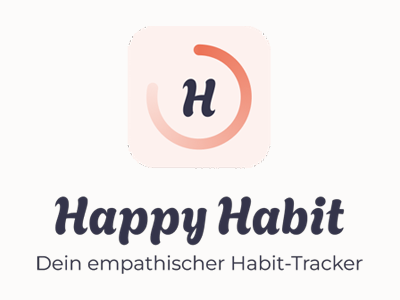
Happy Habit
Gamified Habit Tracking App
A mobile application designed to help users build and track positive habits through a gamified interface, combining behavioral psychology principles with engaging design.
The Challenge
Building positive habits is one of the most challenging aspects of personal development. Most people start with enthusiasm but struggle to maintain consistency over time. The challenge was to create an app that not only tracks habits but also motivates users to stick with them through engaging design and proven psychological principles.
My Role & Responsibilities
Project Leadership
Led a small development team, managed project timeline, and coordinated between design and development phases
Technical Architecture
Designed the app's architecture using React for the frontend and Node.js for the backend
Feature Development
Implemented core features including habit tracking, progress visualization, and gamification elements
User Experience
Collaborated closely with designers to ensure the app was intuitive and engaging
Key Features Implemented
Habit Tracking System
Users can create, customize, and track daily habits with flexible scheduling options
Progress Visualization
Interactive charts and graphs that show habit streaks, completion rates, and long-term progress
Gamification Elements
Achievement badges, streak counters, and milestone celebrations to keep users motivated
Smart Reminders
Intelligent notification system that adapts to user behavior patterns
Social Features
Optional sharing of achievements and progress with friends for accountability
The Psychology Behind the Design
Understanding that habit formation requires both consistency and motivation, I incorporated several psychological principles into the app's design. The streak counter leverages the "don't break the chain" principle, while the achievement system provides immediate positive reinforcement.
The progress visualization helps users see their long-term growth, which is crucial for maintaining motivation when immediate results aren't visible. This combination of psychological triggers creates a powerful system that keeps users engaged and motivated to continue their habit-building journey.
Technical Implementation
The app was built using React for the frontend, providing a smooth and responsive user experience. The backend was developed with Node.js, offering robust API endpoints for data management. I implemented a clean, component-based architecture that made the codebase maintainable and scalable.
Challenges & Solutions
One of the biggest challenges was creating a notification system that was helpful without being annoying. I solved this by implementing adaptive notifications that learn from user behavior - if someone consistently completes a habit at 9 AM, the app would suggest that time for reminders.
Another challenge was data visualization that was both informative and visually appealing. I created custom chart components that made progress tracking engaging and easy to understand, using color psychology to reinforce positive behaviors.
Results & Impact
The app successfully helped users build lasting habits through its combination of tracking, motivation, and social features. User feedback highlighted the effectiveness of the gamification elements and the intuitive interface. The project taught me valuable lessons about user psychology, mobile development best practices, and the importance of creating experiences that users want to return to daily.
Key Learnings
User Psychology
Understanding what motivates people to stick with habits is crucial for app design
Mobile UX
Mobile interfaces require special consideration for touch interactions and screen real estate
Data Visualization
Complex data needs to be presented in ways that are both accurate and engaging
Team Leadership
Leading a development team requires clear communication and the ability to balance technical and business requirements